Apparently, Chicago has had above-freezing temperatures for more than 24 hours. Anyone want to lay odds on whether I can drive my car when I get home?
It's snowing again in Chicago. Not a lot. But definitely flurries.
The Tribune predicts our snow cover may melt within two weeks. They also report that 49 states have snow on the ground today; only Florida seems to have missed it. (Hawai'i, don't forget, has a 4,200 m volcano that gets snow occasionally.) And they report that Oklahoma will experience a 55°C swing in temperatures over the next few days, from yesterday morning's -34°C to next week's expected 22°C.
But it's snowing again. Crap.
The good news: today we've probably had the coldest day we'll have all year.
The bad news: it's just now gotten above -10°C, after hitting -23°C this morning.
I've been really Zen about winter, but I'm losing patience.
At least I don't have the problems our local squirrel population has. Poor dudes.
Checking up on my car this morning I found this:
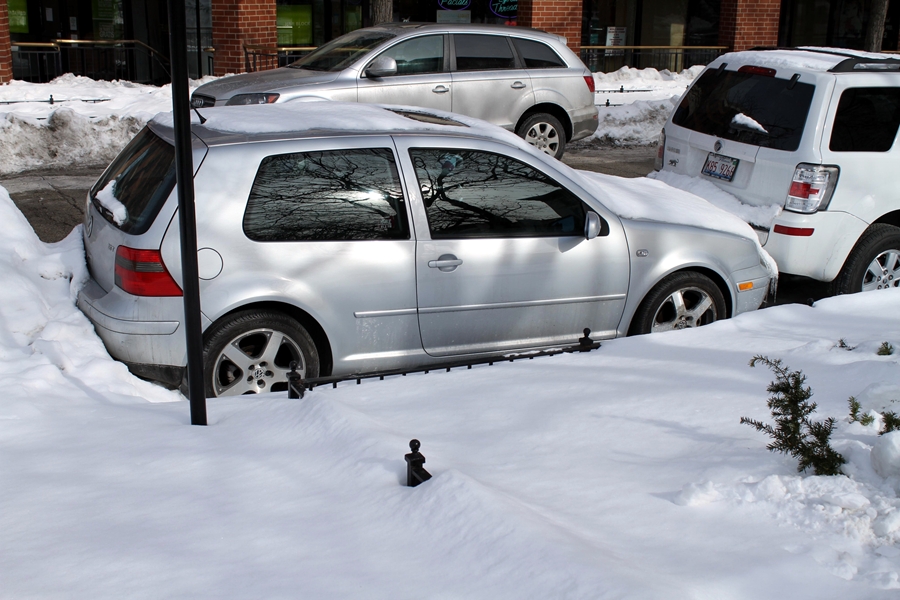
Yeah, no way I'm getting it out without a backhoe or a serious thaw. This shot doesn't make it obvious that the city pushed my car into contact with the SUV to its front. And given the massive glacier at its back, I don't think my little VW can push its way back, either.
Three cheers—albeit half-hearted ones—for the CTA.
Nobel-laureate economist Paul Krugman lays out a simple demonstration of how an increase in the global average temperature necessarily leads to more extreme weather events without eliminating other effects:
Now suppose that a warming trend shifts the whole probability distribution to the right — which is what we mean when we talk about climate change. Then the result looks like this:
.jpg)
What happens is that the right tail gets fatter: the probability, and hence the frequency, of extreme events goes up.
Two immediate implications. First, there will still be cold stretches: global warming shifts the distribution, it doesn’t eliminate the left side of the distribution. So there will still be cold spells; that proves nothing.
Second, no individual weather event can properly be said to have been "caused" by global warming. Heat waves happened 30 years ago; there’s no way to prove that any individual heat wave now might not have happened even if we hadn’t emitted all that CO2.
But the pattern should have changed: we should be getting lots of record highs, and not as many record lows — which is exactly what we do see. And we should be seeing 100-year heat waves and similar events much more often than history would have suggested likely; again, that’s what we actually do see.
The point is that the usual casual denier arguments — it's cold outside; you can’t prove that climate change did it — miss the point. What you’re looking for is a pattern. And that pattern is obvious.
Shortly later Krugman pointed out that China, historically a net food exporter, has to import food this year because of record droughts.
The Tribune reported this morning that the 66 mm of snow we got yesterday set a record, by pushing this winter's total snowfall above 125 cm for the 4th winter in a row. We've never had four consecutive 125 cm winters before. Mazel tov, Chicago.
In the same blog the Tribune also explained why wind chills seem warmer than 10 years ago: the formula changed in 2001. So a wind chill of -40° in 2000 might only be -20° now. Doesn't that make you feel better?
Looks like my exertions yesterday were nearly pointless:
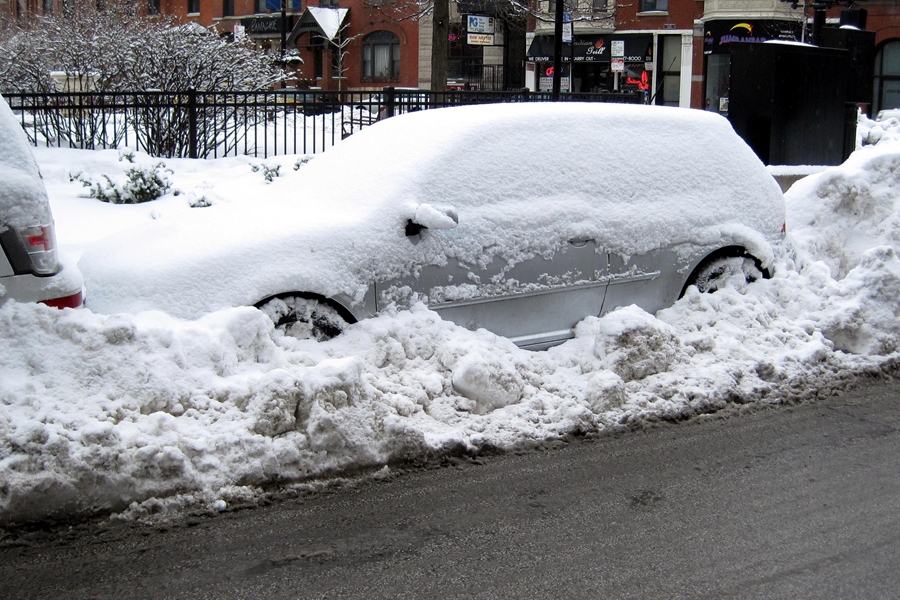
For a lagniappe, they gave the snow behind my car an extra push, making me wonder how I will be able to get out of the spot at all:
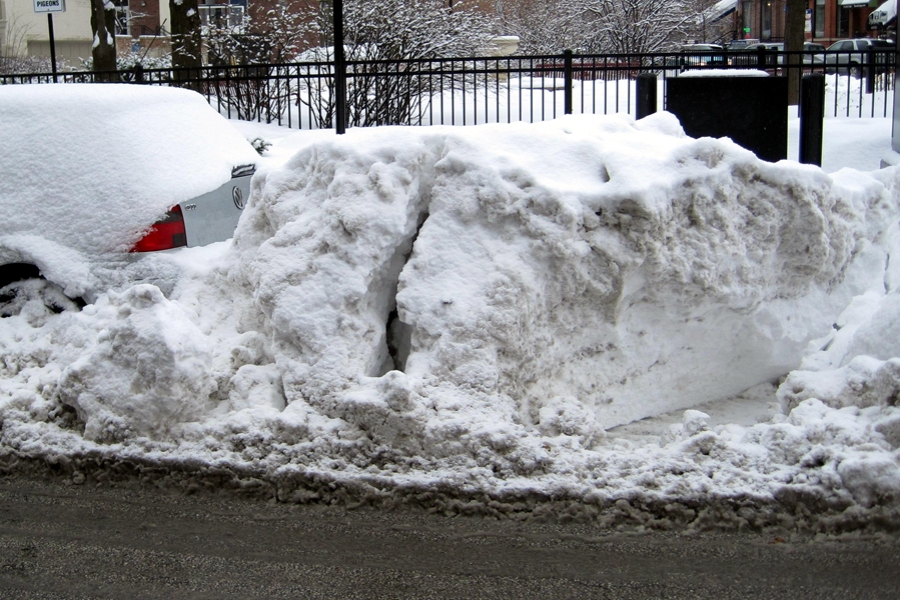
At least there's Zipcar if I need it.
I dug my car out of a meter-high snowbank yesterday. Flash forward to this morning:
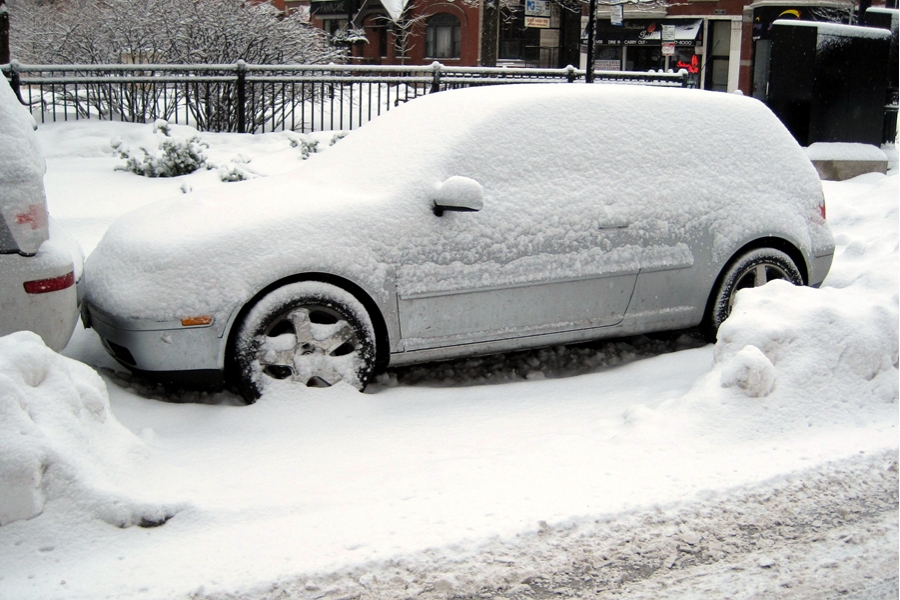
Fortunately, the overnight snowfall (about 5 cm so far) is light and fluffy, which I can remove in just a few minutes. The 40 minutes I spent yesterday involved moving hunks of ice and frozen, gray slush. And, as a friend pointed out, it is February.
I mentioned yesterday that having my car snowed in didn't bother me much. I do have to use it eventually, however. Today the temperature got above freezing, the warmest we expect it to be for the next week, at least. So, after 40 minutes with a shovel and a spade, I went from this:

To this
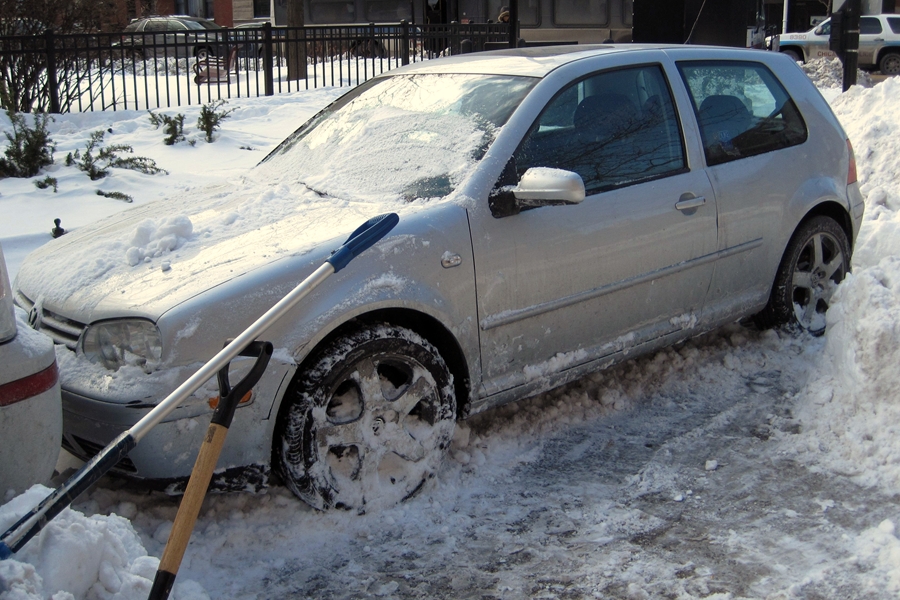
I will now shower. And nap.
The storm this week forced 20,000 flight cancellations costing $120-150 million:
American Airlines, the country’s third-largest carrier, took the biggest hit after high winds and ice closed its Dallas-Fort Worth International Airport hub Tuesday.
American, along with American Eagle and its other commuter operations, racked up more than 5,300 cancellations for the week, according to FlightAware, which tracks airline performance.
Assuming that 10 percent to 30 percent of stranded customers choose to not reschedule, the cancellations likely reduced first-quarter net income of parent company AMR Corp. by $41.5 million to $51.3 million, or 12.5 cents to 15 cents a share, said Vaughn Cordle, chief analyst at AirlineForecasts.
None of the airlines the article discussed commented on the figures.